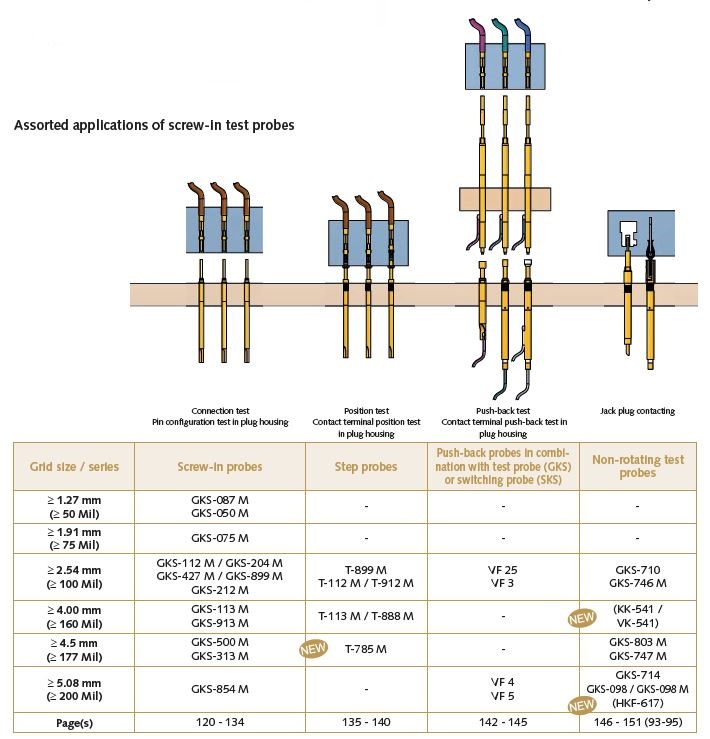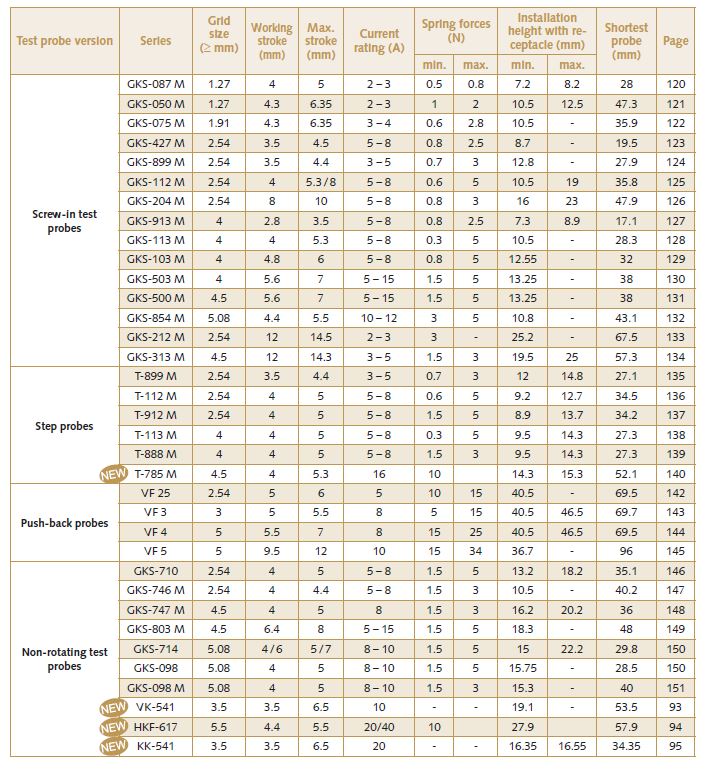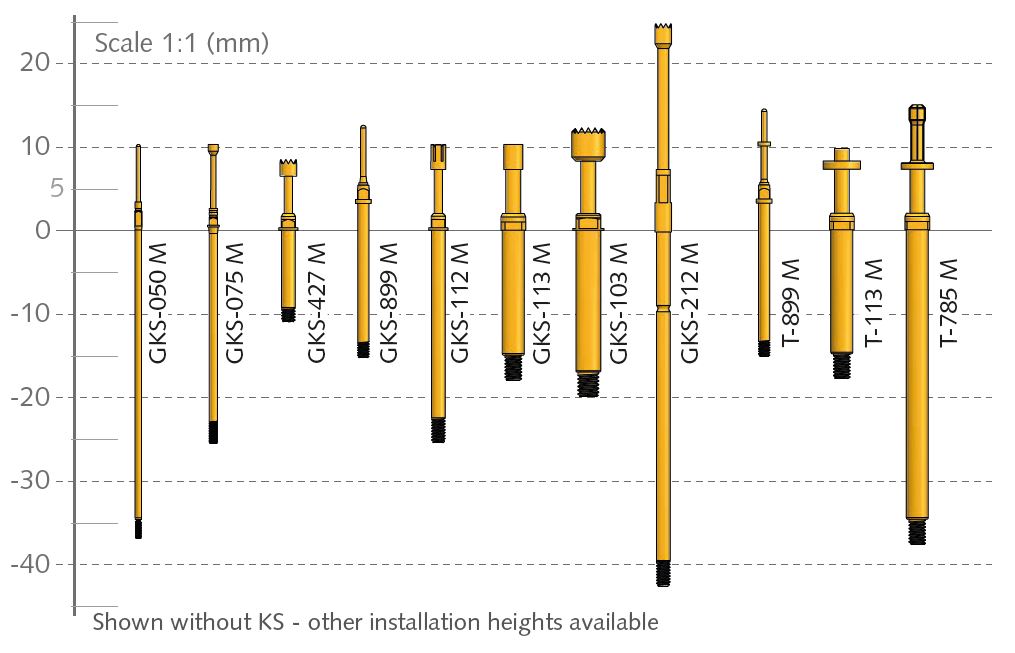Screw-in Test Probes / Step Probes
Screw-in test probes are often used to contact cable harnesses and plug connectors. They remain securely positioned in the receptacle even under challenging test conditions with vibrations or axial force. Screw-in test probes with thread have the designation ‘M’ at the end of the part number.
Cable harnesses are the central connection elements between various components in the automobile industry and mechanical engineering and supply these with either power or signals.
To guarantee uninterrupted operation, high demands are placed on the cable harness as well as the plug connector used.
The cable harness has to pass various tests before it is fitted, these include: connection test, position test, push-back test, and function test.
A further area of application for screw-in probes is the contacting of plug connectors on various electronic devices, such car radios, control units, PCs, smart devices, and many more.

Many press-in test probes offered by INGUN are also available as a screw-in version. Thus, a secure hold during testing is guaranteed. Screw-in probes are especially recommended for applications with possible vibrations or unwanted side forces and axial forces.
Step probes are inserted in the plug housings to test the correct position of the contact terminals (contact sheets).
Contact will only occur when the pin of the step probe is correctly positioned. INGUN offers a wide variety of step probes with tip dimensions, stop collar (disk) dimensions, and pin length.
When finally plugging the plug connectors together, it is important that the contact terminals (contact sheets) remain in the correct position, and cannot be pushed back. For this test, push-back probes with a spring force of up to 34 N are used.
For testing flat connector blades or jacks which can only be contacted in one position, non-rotating probes are used.
These probes are already aligned in the correct position during assembly.
Screw-in Test Probes Overview and Comparison

Many press-in test probes offered by INGUN are also available as a screw-in version. Thus, a secure hold during testing is guaranteed.
Screw-in probes are especially recommended for applications with possible vibrations or unwanted side forces and axial forces (loosening of probe is avoided).
The test probes are screwed into the receptacle using the appropriate tools. The required screw-in torque is achieved by the spanner flat on the barrel.
The electrical connection is made via the receptacle using a solder cup or wire-wrap. Receptacles also sometimes feature an axial bore hole for leakage tests, or are designed to be vacuum sealed.
Step probes are inserted in the plug housings to test the correct position of the contact terminals (contact sheets).
Contact will only occur when the pin of the step probe is correctly positioned. INGUN offers a wide variety of step probes with tip dimensions, stop collar (disk) dimensions and pin length.
The step probes are screwed into the receptacle using the spanner flat on the barrel, or a positive-locking connection on the tip of the plunger.

 EN
EN TH
TH VN
VN JP
JP CN
CN
